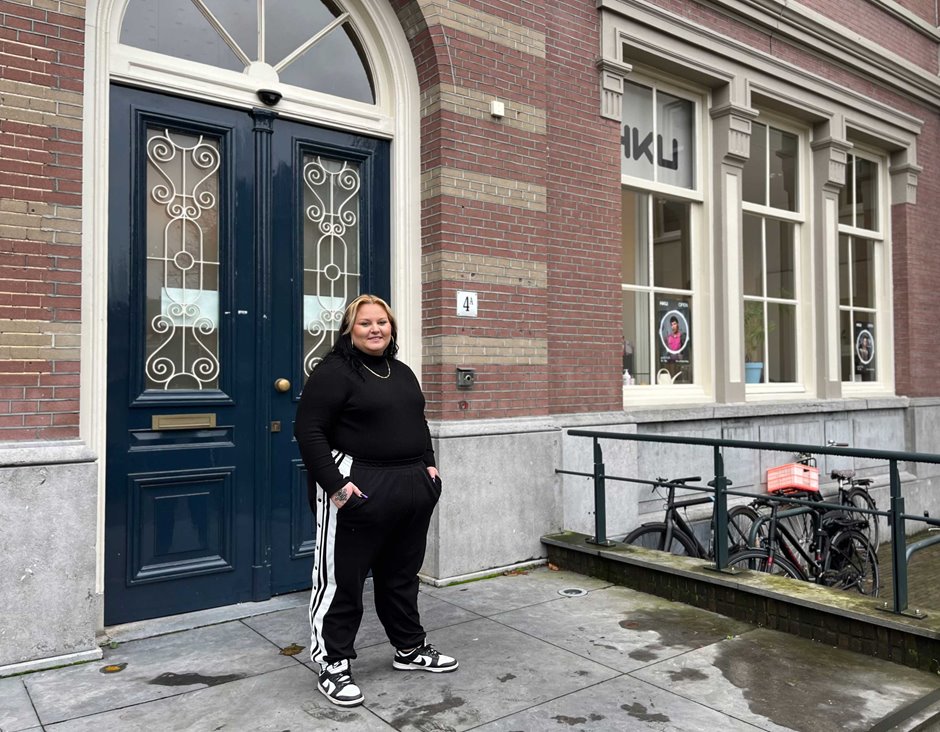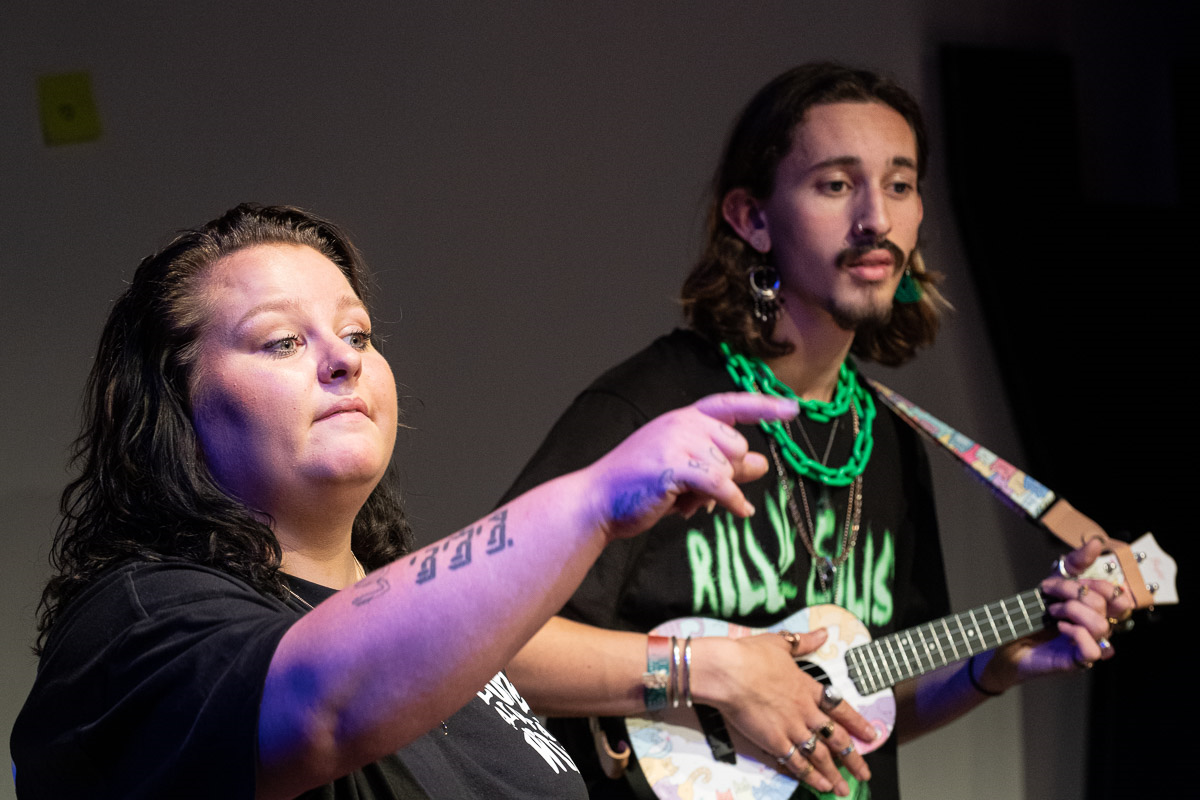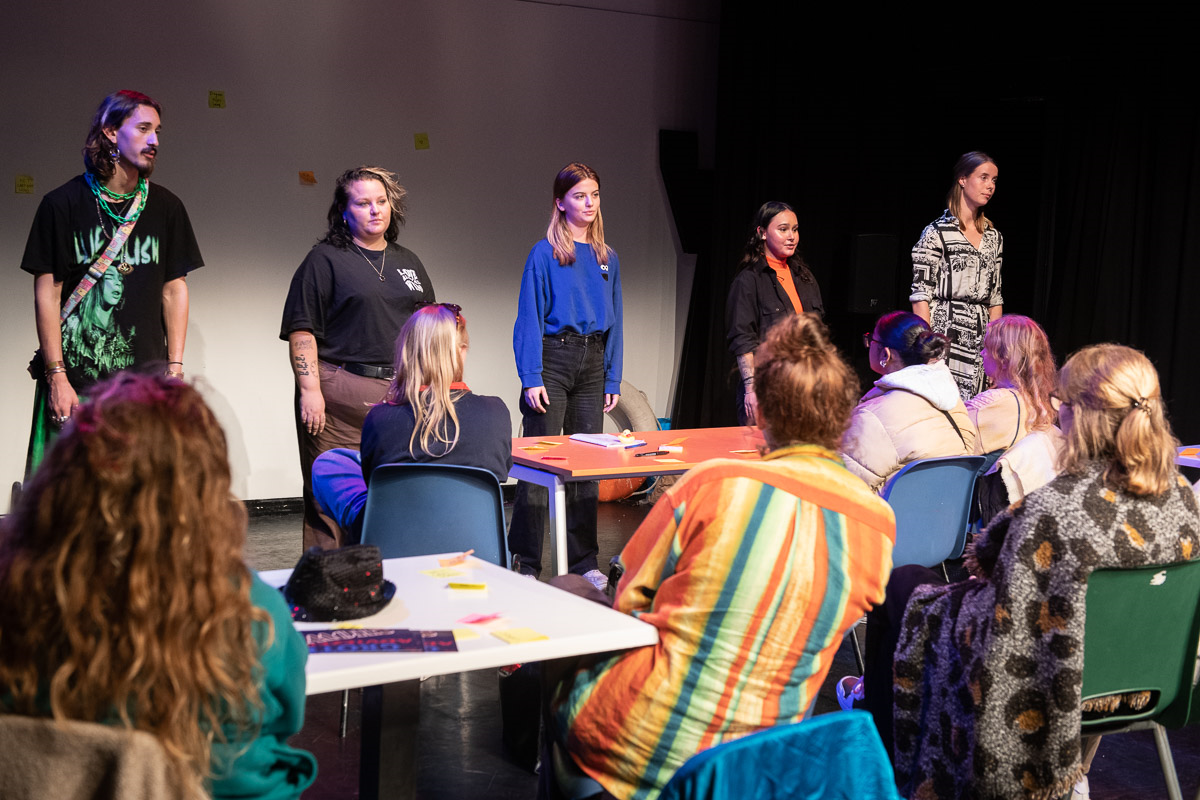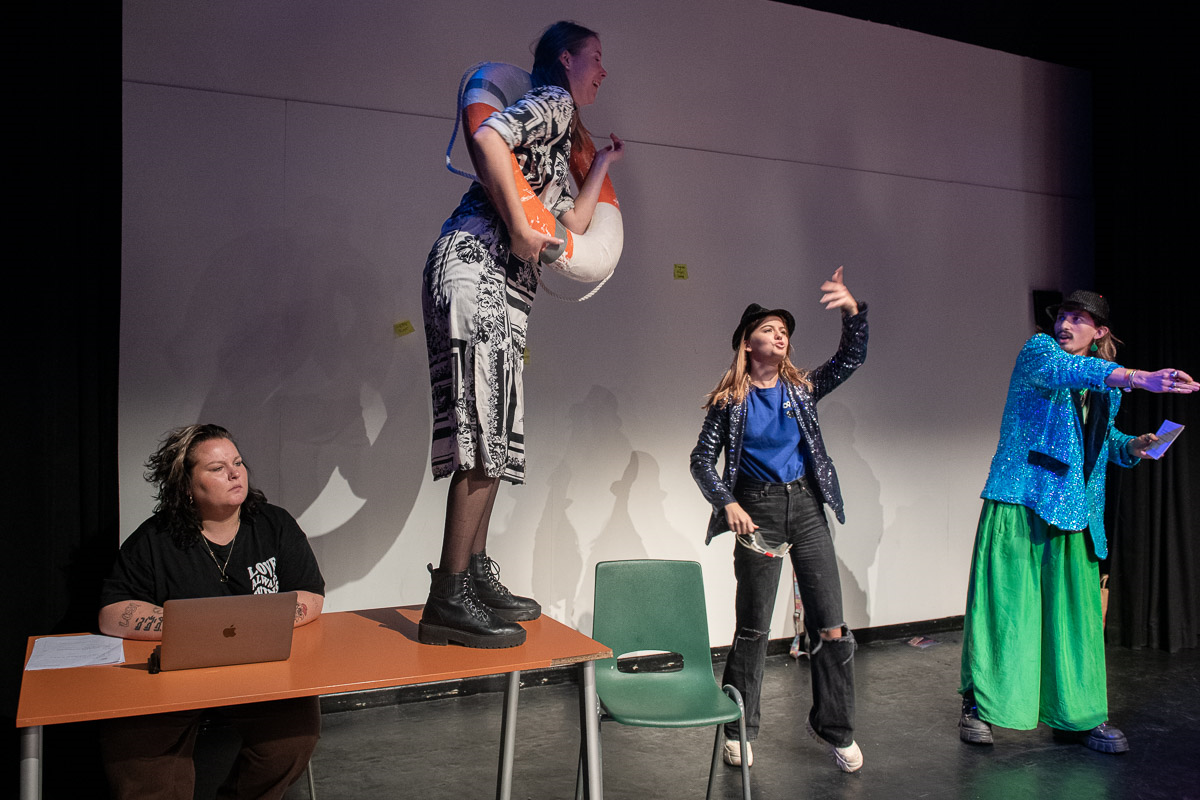HKU Theatre In Education claims Top Programme status again
‘What I can remember for the audition rounds, is that I went there with the feeling that I was the only one that would be tested. But it turned out that the reverse was just as true. I was also testing this school and this programme to see if it was right for me. Teachers emphasised to me that it was also important that I asked myself that. That sense of equality extends across the whole programme. Teachers are genuinely interested in your opinion and use the input from students to shape the education.’

Learning from each other
Study programme leader and teacher Carmen Lamptey confirms that. ‘We do our best to make people feel at home here. To create that sense of community. Our teaching methods are based on exploring and trying out together. When something succeeds, we celebrate this together. And when it doesn’t, we help each other out. This works both ways, because a teacher might be more experienced, but still can learn a lot from the students.’The teacher-student relations are based on learning through reciprocity; by giving and taking. And in that same vein, students learn a lot from each other, Carmen says. ‘To illustrate: students from the first- year act as director’s assistants for the performances of fourth-year students. And a number of fourth-year students serve as co-teachers in the first-year classes. This intergenerational exchange of knowledge also strengthens that community vibe.’
Modern
Kayleigh thinks it is important that teachers themselves keep exploring and broadening their view on the professional field. ‘Both theatre education and the theatre practice are always changing, and teachers follow along in these developments. That surely wasn’t the case at my earlier lower-level studies, where my teachers did nothing else besides teaching.’
Carmen also thinks that exactly this mentality among teachers explains why this HKU programme is ranked so highly. ‘Teachers know what’s going on in the industry and are up-to-date about theatre education. We are working very hard to ensure that our curriculum keeps up with the times, which determines our choices for projects, modules, partnerships, internship positions and guest teachers. Essentially, the whole content of our programme is based on these outside developments.
Diversity and inclusion
Carmen also takes pride in the way ‘her’ academy treats the subject of diversity and inclusion. ‘This is a huge topic across the whole sector, yet one where many people, institutions and academies are still struggling with. What I’m proud of, is that we as educational institute simply started to put it into practice. You can notice that it initiates changes within the education. Not just in terms of student populations and the diversity of teachers, but also with regard to the source materials that are used and the perspectives from which stories are told. What norms should we uphold? And are we willing to questions those norms? We are doing this actively and precisely.
Because the classes focus a lot of attention on diversity and inclusion, Kayleigh almost automatically incorporates this theme into her internship activities. ‘Last year, I gave a class about various cultural backgrounds and instructed pupils to act out what a birthday party was like at their home. It was remarkable to see how much mutual contact this brought about. I think that classes like this can be really valuable to any teacher or theatre producer.’
Communality
When asked what makes HKU Theatre in Education different compared to other drama teacher’s programmes in the Netherlands, Carmen answers: ‘The didactic method that I just described, of exploring and trying out together. That’s very typical for this particular course. That, and the fact that HKU Theatre lets us do many things as a group, in collaborations between each of the five graduation paths of HKU Theatre, and even with students from the Music in Education and Fine Art and Design schools. This aspect of communality is clearly stronger here than at other academies. And that’s not by definition a positive aspect, but it is when it fits you as a person.
The Keuzegids, or Study Choice Guide, is an independent guide to help students compare the available higher education programmes. The scores are based in part on the results of the National Student Survey (NSE). The next NSE is held from January 2024.


